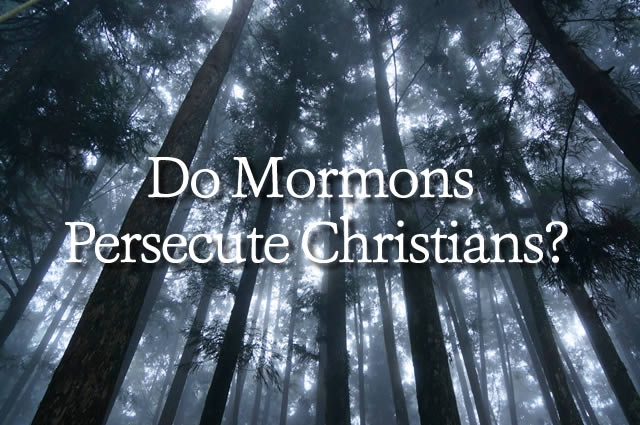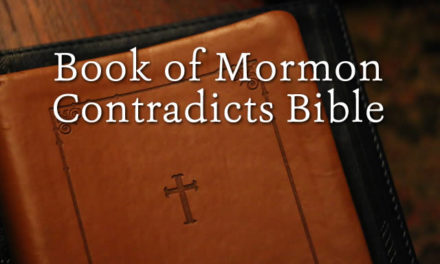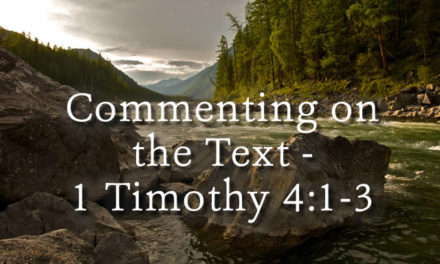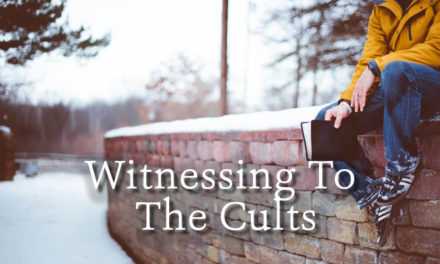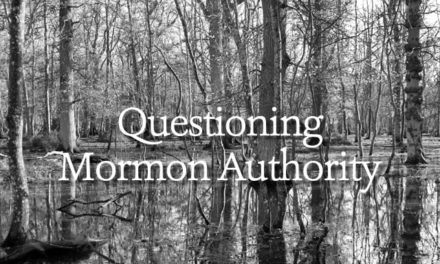Christians who are prepared to witness to Mormons are frequently accused by them of engaging in persecution. Those of us in ministries to the Latter-day Saints are asked, “Why do you single out the Mormons for persecution?”
The word persecution demonstrates a misunderstanding of what our witness is about. To tell someone the truth is not persecution. It would be persecution if we were denying them their religious liberty, or attacking them verbally or physically.
The opposite should be the case. Our Christian witness is one of persuasion with full respect for the right of Mormons, or anyone else, to believe what they wish.
The other side of this coin is the Mormon telling Christians what they consider to be the truth. If they wish to call our witness to them persecution, would they apply the same term to their “witness” to Christians.
A few quotes from Mormon sources will demonstrate the attitude of Mormonism to Christian churches. If we say Mormonism is wrong and they call that persecution then, logically, the same term can be applied when Mormon missionaries tell the story of what is called Joseph Smith’s First Vision?
In that alleged vision Smith asked God the Father and Jesus “which of all the sects was right, that I might know which to join… I was answered that must join none of them, for they were all wrong; and the Personage who addressed me said that all their creeds were an abomination in his sight; that those professors were all corrupt; that: ‘they draw near to me with their lips, but their hearts are far from me, they teach for doctrines the commandments of men, having a form of godliness, but they deny the power thereof'” (Joseph Smith – History 1:18, 19).
To become a Mormon a potential convert will face this claim. It is the very foundation of the LDS religion. They claim to be a restoration of true Christianity and if Christianity still existed at the time of Smith’s vision then there would be no need for his restoration.
The denominations having churches in Smith’s hometown of Palmyra, NY were the Baptists, Methodists, and Presbyterians. These denominations, therefore, were specifically in mind. (An interesting footnote to this is documented in Mormonism: Shadow or Reality (pages 161-162) which shows that Joseph Smith and members of his family either joined, or were active, in the Methodist and Presbyterian churches up until 1828, eight years after the First Vision.)
Most converts to Mormonism come from Protestant churches. It is to our people that the Mormon missionaries say our churches are apostate.
In Bruce McConkie’s book Mormon Doctrine, under the heading of Harlots, it says, “See Church of the Devil.” It also says, “Then, speaking of harlots in the figurative sense, he designated the Catholic Church as ‘the mother of harlots’ (I Ne. 13:34; 14:15-17), a title which means that the protestant churches, the harlot daughters which broke off from the great and abominable church, would themselves also be apostate churches” (pages 314-315).
The claim of persecution is intended to accomplish two things. First, it is intended to shame us into silence. Persecution is a reprehensible thing that we as Christians think should not be practiced by anyone against anyone. If we buy the Mormon definition of persecution as pointing out error in their belief, then we will withhold our criticisms.
Second, it is intended to gain the sympathy of the general public. We as Americans naturally side with those who suffer persecution for their faith. The best antidote to the mischaracterization of our witness is to continue to speak the truth in love.
By David Henke
May 2001

